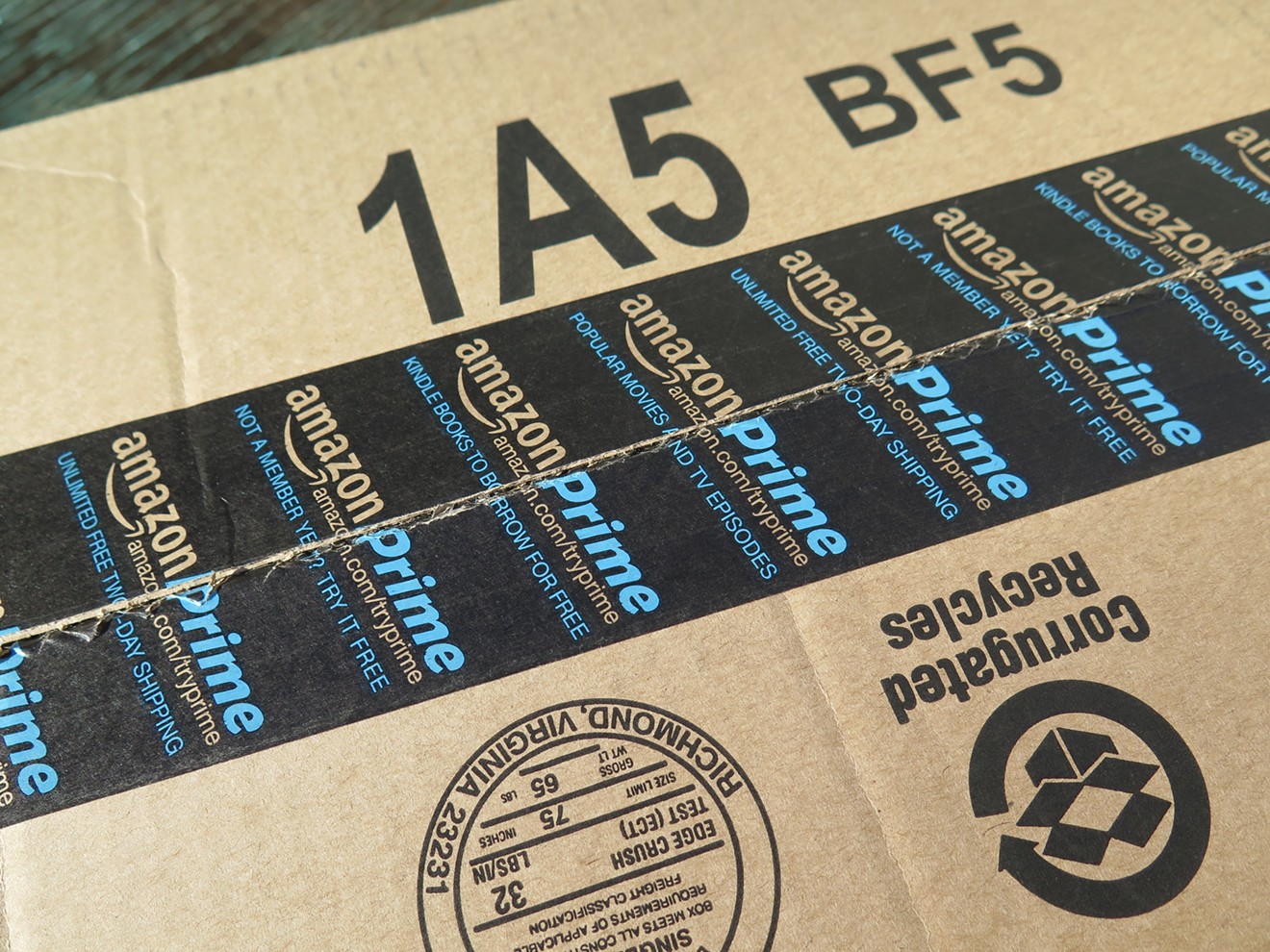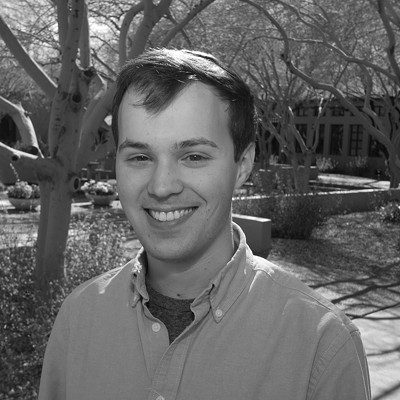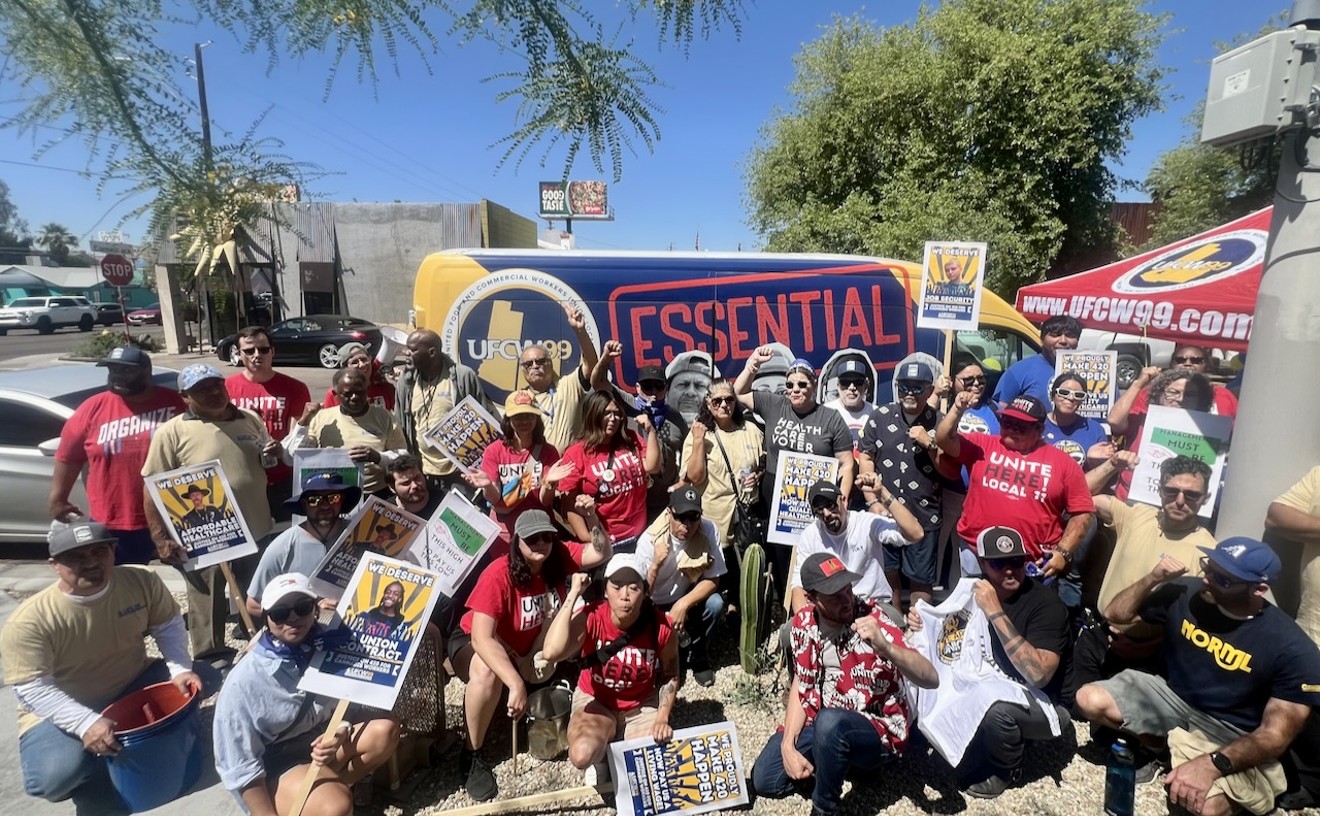Tucson sent Amazon a cactus. Metro Phoenix drafted a mysterious package of incentives. Governor Doug Ducey said that Arizona would try to convince the retailer to make Arizona its second home.
None of it mattered.
On Thursday morning, Amazon released a 20-city shortlist of the remaining contenders for the tech giant's second headquarters. Despite prostrating themselves at the altar of the tech company, neither Tucson nor the Phoenix metro area made the cut.
Almost 240 cities submitted bids to play host to Amazon's second full-fledged headquarters in North America. The company expects to invest over $5 billion in HQ2, as they refer to it, and estimates it will employ 50,000 workers. As a result, cities were salivating over the idea of Amazon moving into their backyards.
For its public display of affection, Tucson's economic development group sent Amazon a huge saguaro cactus. The CEO of Sun Corridor practically begged the tech gods to turn their eye to Tucson.
"We wanted to make sure Mr. Bezos and his team notice us and send a message of 'we have room for you to grow here for the long term,'" Joe Snell said in a statement.
Perhaps Tucson should've seen today's news coming — Amazon was forced to return the cactus, which it donated to the Arizona-Sonora Desert Museum. The company said it can't accept gifts.
Cities in the Phoenix metro area were more subdued in their bid for HQ2, while still making it clear that they'd gladly welcome Amazon. Sites in Mesa and Tempe were possibilities, along with the Park Central Mall in Phoenix.
The Greater Phoenix Economic Council submitted a bid on behalf of metro Phoenix. GPEC President and CEO Chris Camacho said that many large corporations have a presence in Phoenix, including 6,000 Amazon employees who are here already.
The public exercise of an application process to host a tech company's new headquarters now looks totally futile and a bit embarrassing for the 218 cities that were rejected. So why did Amazon do it?
"We want to find a city that is excited to work with us and where our customers, employees, and the community can all benefit," the company wrote in their announcement. Sure. But the public bidding process seems an awful lot like a canny negotiating tactic — Amazon gets to survey all the public-sector incentives and tax breaks that various cities throw at their feet, and select the winner with an imperious nod. Everyone else goes home empty-handed.
We don't really know what Phoenix offered. Camacho told New Times this fall that he can't comment on the specifics of the final proposal or any public-sector incentives that GPEC put on the table in order to convince Amazon to move here.
Amid the frenzy, it seemed like no one was asking the question: Did we even want Amazon's second headquarters in Phoenix?
Camacho disputed potential downsides to a tech company coming to town, such as inflated housing costs. In Seattle, Amazon's home base, the company's growth has created a prickly relationship between the tech giant and less-than-grateful local pols and citizens.
"Decades of strategic planning on transportation and transit, and dedicated voter-approved funding places Greater Phoenix in an advantageous position," Camacho wrote in an email. "Further, the metro Phoenix population has continued to increase exponentially year over year, with more than 100,000 people moving to the state each year, and because of that, the region is well equipped to handle sizable population increases."
But according to Joochul Kim, an associate professor at ASU’s School of Geographical Sciences and Urban Planning, it's not that simple.
Mass public transit here is still gradually unfolding, and it's unclear what impact Amazon's HQ2 could've had on affordable housing in Phoenix with 50,000 tech workers relocating here. In all likelihood, Kim said that a new HQ would be a great deal for a small number of highly skilled workers, but the ripple-effect strains on affordable housing and infrastructure could hurt people who work in the service sector.
"To me, the real concern is whether or not it’s going to create additional urban sprawl surrounding Phoenix metro," Kim told New Times in October. "If truly 50,000 people come, in the sections of Phoenix metro, housing prices could shoot up, thereby limiting the presence of affordable housing."
Rising housing prices would hurt the Arizonans in whatever neighborhood the Amazon transplants decided was most desirable or close to the new HQ2. And of course these residents probably wouldn't make anything close to the salary of a tech employee.
As for the cities that will move on to the next round of Amazon's competition? The East Coast is well-represented, with Boston, New York City, Washington D.C., and Philadelphia. In the Great Lakes region, Toronto, Indianapolis, Chicago, and Columbus are advancing. And a few dark horse candidates like Montgomery County, Maryland, Newark, and Nashville are still in the running.
Arizona, meanwhile, will just have to sit back and watch.
[
{
"name": "Air - MediumRectangle - Inline Content - Mobile Display Size",
"component": "18478561",
"insertPoint": "2",
"requiredCountToDisplay": "2"
},{
"name": "Editor Picks",
"component": "16759093",
"insertPoint": "4",
"requiredCountToDisplay": "1"
},{
"name": "Inline Links",
"component": "17980324",
"insertPoint": "8th",
"startingPoint": 8,
"requiredCountToDisplay": "7",
"maxInsertions": 25
},{
"name": "Air - MediumRectangle - Combo - Inline Content",
"component": "16759092",
"insertPoint": "8th",
"startingPoint": 8,
"requiredCountToDisplay": "7",
"maxInsertions": 25
},{
"name": "Inline Links",
"component": "17980324",
"insertPoint": "8th",
"startingPoint": 12,
"requiredCountToDisplay": "11",
"maxInsertions": 24
},{
"name": "Air - Leaderboard Tower - Combo - Inline Content",
"component": "16759094",
"insertPoint": "8th",
"startingPoint": 12,
"requiredCountToDisplay": "11",
"maxInsertions": 24
}
]













